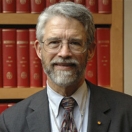
Since President Obama took office in 2009, the Administration has focused on promoting innovation for the purposes of strengthening the economy, improving quality of life, and protecting the safety and security of our country.
Today, the President’s Council of Advisors on Science and Technology (PCAST) is announcing the formation of a new working group focused on strengthening the U.S. semiconductor industry in ways that benefit the nation’s economic and security interests.
Semiconductors are essential to many aspects of modern life, from cellphones and automobiles to medical diagnostics to reconnaissance satellites and weapon systems. The semiconductor industry directly employs 250,000 workers, is the third largest source of U.S. manufactured exports, and has the highest level of investment in research and development (R&D) as a percentage of sales of any major industry. In addition, the semiconductor industry creates foundational technologies that enable innovation in virtually every sector of the U.S. economy. A loss of leadership in semiconductor innovation and manufacturing could have significant adverse impacts on the U.S. economy and even on national security.
In a world where the supply chains are global, policies being pursued by other countries are posing new challenges to the U.S. semiconductor industry. Specifically, some countries that are important in this domain are subsidizing their domestic semiconductor industry or requiring implicit transfer of technology and intellectual property in exchange for market access. Such policies could lead to overcapacity and dumping, reduce incentives for private-sector R&D in the United States, and thereby slow the pace of semiconductor innovation and realization of the economic and security benefits that such innovation could bring.
The industry may also be approaching technological and economic inflection points. Based on the currently commercialized approach to semiconductor technology, the industry may soon be unable to continue the pace of advance described by “Moore’s Law”—doubling the processing power of chips every 18–24 months—a pace that has brought with it rapid advances in the capabilities of systems that use semiconductors, opened up new applications, and thus fueled economic growth while increasing quality of life and strengthening national security. Indeed, the exponentially growing cost of designing and fabricating higher-performance chips in the conventional mold is already stifling innovation, making it more difficult for startups and new ideas from university research to create new markets—a key source of competitive advantage for America’s entrepreneurial economy.
Additional public and private investments in R&D are almost certain to be required if the past remarkable pace of improvements in price and performance of semiconductors and the benefits deriving therefrom are to continue—R&D that looks to create new technologies that can leapfrog beyond the limits of today’s technology and explore entirely new computer architectures and their integration into systems well beyond the traditional computing sphere, including automotive and other mobile applications.
The time is therefore right for a fresh look at the policy issues shaping innovation and global competition in the semiconductor industry. The new PCAST working group will identify the core challenges facing the semiconductor industry at home and abroad and identify major opportunities for sustaining U.S. leadership. Based on its findings, the working group will deliver a set of recommendations on initial actions the Federal government, industry, and academia could pursue to maintain U.S. leadership in this crucial domain.
The full working group includes the following members:
- John Holdren (Director, OSTP; PCAST Co-Chair); Working Group Co-Chair
- Paul Otellini (Former President and CEO, Intel); Working Group Co-Chair
- Richard Beyer (Former Chairman and CEO, Freescale Semiconductor)
- Wes Bush (Chairman, CEO, and President, Northrop Grumman)
- Diana Farrell (President and CEO, JP Morgan Chase Institute)
- John Hennessy (President Emeritus, Stanford University)
- Paul Jacobs (Executive Chairman, Qualcomm)
- Ajit Manocha (Former CEO, GlobalFoundries)
- Jami Miscik (Co-CEO and Vice Chairman, Kissinger Associates; Co- Chair, President’s Intelligence Advisory Board)
- Craig Mundie (President, Mundie and Associates; Former Senior Advisor, Microsoft; Member of PCAST)
- Mike Splinter (Former CEO and Chairman, Applied Materials)
- Laura Tyson (Distinguished Professor of the Graduate School, UC Berkeley; Former CEA Chair and NEC Director)
John P. Holdren is Assistant to the President, Director of the Office of Science and Technology Policy, and co-chair of the PCAST Semiconductor Working Group.
Paul Otellini is the former President and CEO of Intel Corporation and co-chair of the PCAST Semiconductor Working Group.


